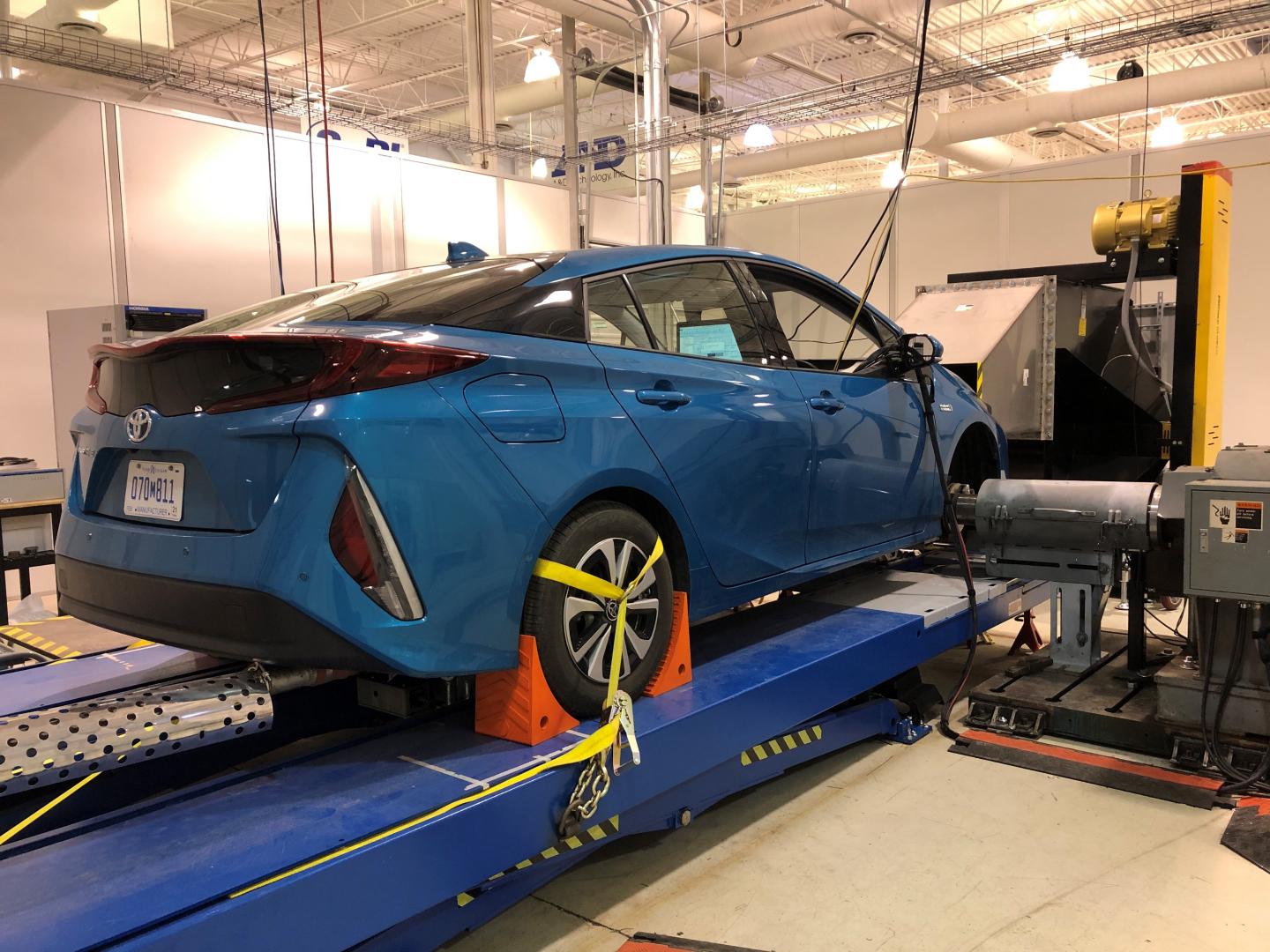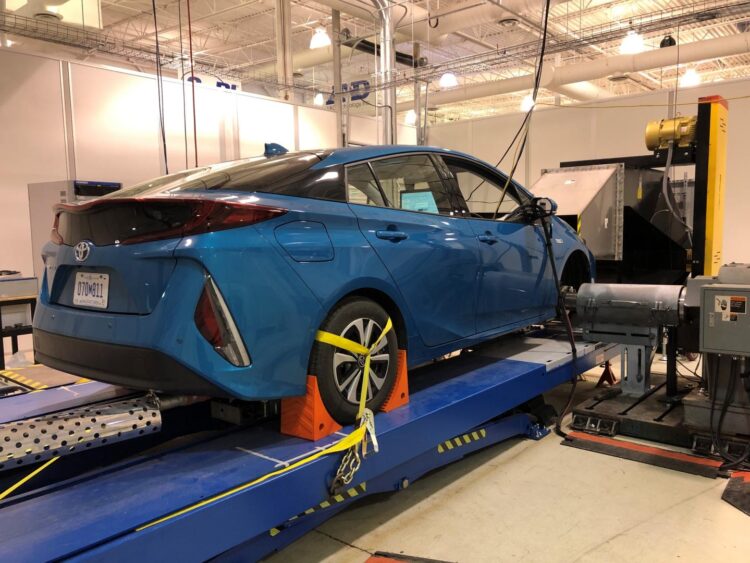Cutting-edge CAV technology to optimize vehicle performance, efficiency

Credit: SwRI
SAN ANTONIO — March 12, 2021 — The U.S. Department of Energy awarded a three-year, $5.25 million contract to Southwest Research Institute to continue developing its cutting-edge connected and automated vehicle (CAV) technologies to help passenger vehicles operate more efficiently and reduce energy consumption and carbon emissions.
The project is the second phase of the Advanced Research Projects Agency-Energy’s (ARPA-E’s) Next-Generation Energy Technologies for Connected and Autonomous On-Road Vehicles (NEXTCAR) program.
On Thursday, Secretary of Energy Jennifer M. Granholm announced in Washington, D.C., that SwRI is one of four teams selected to receive a total of $18 million in funding through Phase II of ARPA-E’s NEXTCAR program. Phase I focused on the development of CAV technologies for use in all vehicle classes, including cars, trucks and buses, with the goal of enabling a 20% reduction in energy consumption. The teams moving to Phase II are building on these goals by focusing on light-duty passenger vehicles and achieving a 30% reduction in energy consumption. They will integrate their technologies into vehicles with Level 4 automation, which gives vehicles the ability to perform all driving operations on their own with optional human override.
“We are excited to have the opportunity to continue developing this technology to optimize vehicle efficiency,” said Scott Hotz, an assistant director in SwRI’s Powertrain Engineering Division and leader of the NEXTCAR project through SwRI’s Ann Arbor Technical Center in Michigan. “It will have enormous benefits, not only to the automotive industry, but more importantly, also to the public by lowering energy consumption and reducing carbon emissions.”
During the first phase, SwRI developed optimal control algorithms to leverage vehicle-to-vehicle (V2V), vehicle-to-infrastructure (V2I) and other vehicle-to-everything (V2X) technologies to simultaneously optimize the vehicle’s route, speed profile and power flows from the hybrid system on a 2017 Toyota Prius Prime plug-in hybrid electric vehicle (PHEV). SwRI demonstrated a more than 20% improvement in energy consumption in real-world driving conditions through this combination of vehicle dynamics and advanced powertrain control algorithms including eco-routing, eco-driving and power-split optimization.
“Vehicle connectivity and automation are already being used to effectively improve vehicle safety and driver convenience,” said Sankar Rengarajan, manager of SwRI’s Powertrain Controls Section. “We tapped into those existing data streams and put the information to use in a new way to help us achieve a 22% gain in fuel efficiency.”
In the second phase, SwRI will build on those technologies and expand its predictive eco-routing, eco-driving and hybrid power control strategies. The eco-driving feature focused on longitudinal dynamics control and contributed about 10% of the energy savings. The algorithm helped the human driver make smarter decisions based on localized traffic knowledge through V2X connectivity and communication. Because of the advanced perception and actuation precision of a Level 4 autonomous vehicle over a human driver, SwRI will expand the eco-driving framework to optimize for multi-lane dynamics and further reduce energy consumption.
“The same nifty features that are making cars easier to drive can also make them way more efficient, use less gas and save drivers money at the pump,” Granholm said. “These technologies are a win-win for drivers, and they’re also going to lead to more jobs, a cleaner transportation sector and rapid progress towards our carbon-free future.”
In the first year of the three-year project, SwRI will focus on infrastructure and simulation studies. In the final two years, researchers will focus on vehicle demonstrations using a CAV chassis/hub dynamometer and specialized test tracks. SwRI also plans to work with an original equipment manufacturer and consult with ARPA E advisors, to expand and accelerate commercialization efforts underway from NEXTCAR I.
###
The other teams selected to move on to Phase II are the University of California Berkeley, Michigan Technical University and Ohio State University.
For more information, visit connectedpowertrain.swri.org.
Media Contact
Rob Leibold
[email protected]
Original Source
https:/





